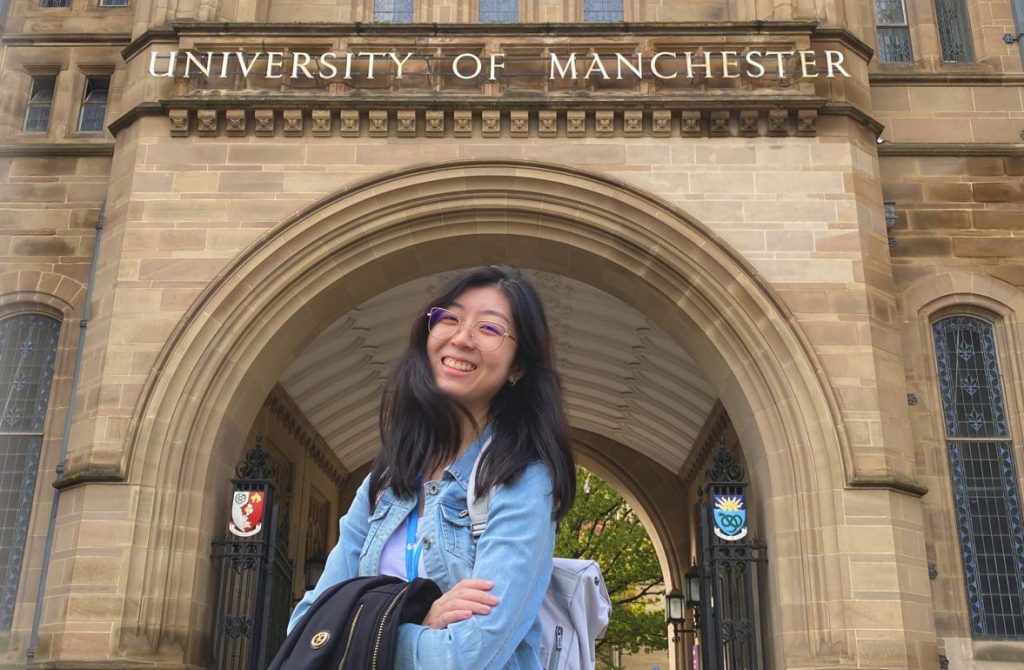
What it’s like Studying Politics, Philosophy and Economics
Written by Allison Lee Cheng Jie – Politics, Philosophy and Economics Student
If you told my high school self that I would be pursuing Politics, Philosophy and Economics (PPE) at the University of Manchester, she would have thrown her head back laughing in disbelief. You see, I was a science stream student in high school and it was my life-long dream to attend a higher education institution in the United States. Ironic, isn’t it, where I ended up?
It wasn’t until when I got to college that I dipped my toes in the metaphorical pool of humanities, taking up electives that eventually piqued my interests in economics and politics. I was also fascinated by the Critical Thinking class I took, which opened the doorway to a range of other philosophy subjects.
When it came time to apply for universities, I narrowed down on institutions with the best economics and politics courses. Incidentally, I uncovered PPE as a potential degree to undertake and was told this major originated from and is concentrated in the UK; hence I began looking in the other direction.
I ended up applying for Manchester because I figured the University and the city would provide me with the perfect academic-social life balance that makes for a fulfilling experience, and I have yet to be disappointed. The varying range of PPE modules offered also benefited as a pull factor since it enables me to feel out which concentration I want to build my future career upon.
My favourite part about studying PPE is how it combines three disciplines that one would rarely think about connecting. It might be easy to draw a line between economics and politics, but it’s fascinating how something as distant as philosophy can come into play to analyse arguments made in the political and economic landscape or even to assess the morality and ethics of rules and regulations upon which countries operate.
This trio allows me to dive not just wide but deep into international happenings:
Politics requires no introduction. Coming from a Southeast-Asian country, I was advised to avoid politics and its murky waters; what inspired me to pursue it regardless was that advice itself. The reason why so many people choose to turn a blind eye to politics is precisely why little progress is being made year in and year out. I believe the first step toward leaving an impact is to stir the discussion pot and look at root causes of problems, hence my motivation for this particular concentration.
Philosophy’s multifaceted limbs extend beyond merely analysing texts written centuries ago; it forces us to look at reality and ask the important questions, sometimes to understand that not all questions have a singular, satisfactory answer. In my first semester’s Critical Thinking class, we went back to basics deconstructing arguments and language—the very element through which we communicate, which eventually snowballs into ground-breaking ideas and world-changing discourses.
A quick game of word association reveals that most people think of ‘money’ when ‘economics’ is mentioned, but that’s not all the study entails. Economics aims to spotlight how we make daily decisions; it magnifies our interactions with things we consider to be of value. Since the world’s waves of motions are made up of ripples of individual choices, this concentration excited me the most.
These three subjects make up my major to give a holistic view of the world and its operations, which is what I love most about it. The fun and challenging part of this degree is connecting the dots between all three concentrations on your own; you are taught individual strands, but the links you form are of your own accord and, to a certain extent, creativity. It’s a degree that also teaches you how to look at the world rather than spoon-feeding you one way to go about it.
As semester one of my first year draws to a close, I am grateful for the opportunity to be studying PPE at the University of Manchester, and I simply can’t wait to see how far semester two takes me.






0 Comments